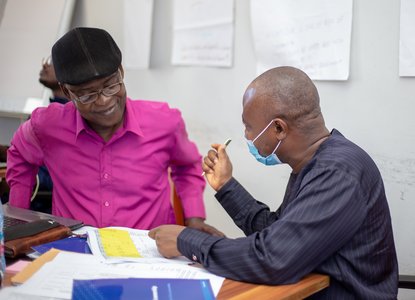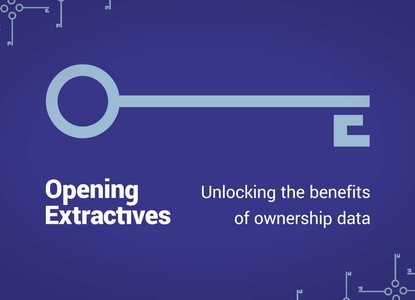Empowering citizens to use corporate ownership data in Zambia
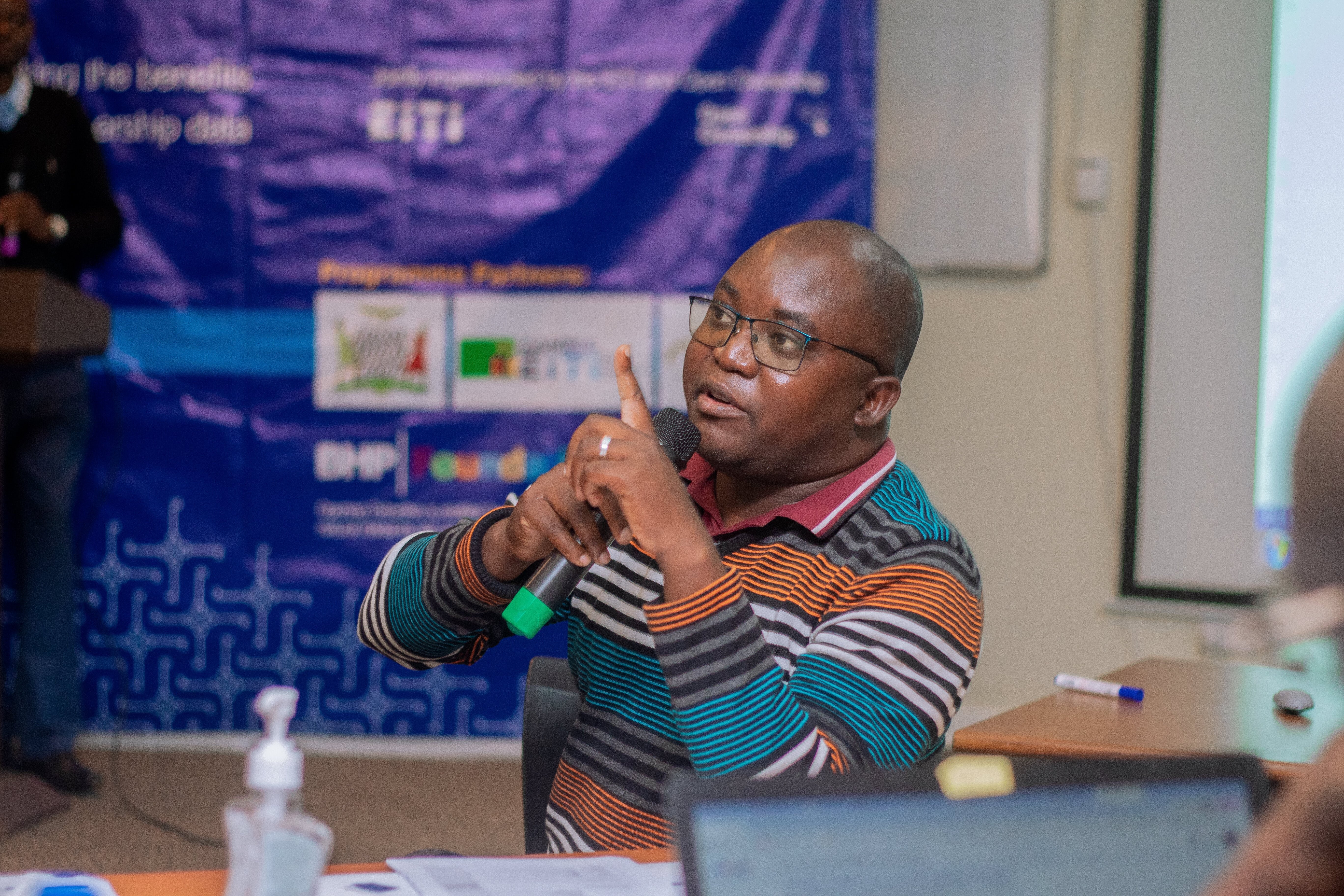
Photo: Sharing insights on ownership chains during the workshop. Source: Zambia EITI
Overcoming challenges of opaque and complex ownership structures: journalists and civil society activists learn how to use public information to improve the management and transparency of natural resources in Zambia.
Data journalists and civil society organisations play a key role in advocating for anti-corruption reforms and using publicly available data to hold governments and businesses to account. Beneficial ownership information is a crucial asset for understanding who operates in a particular economy, and for tracking and preventing illicit financial flows.
At the same time, beneficial ownership is a very complex concept which is not fully understood by all potential users of the information. Complex ownership structures, dominated by opaque legal arrangements shield illicit actors, and prevent authorities and citizens from knowing who really operates behind the scenes.
With that in mind, the Opening Extractives programme delivered a three-day workshop in late June 2022 with the aim of enabling Zambia-based organisations and individuals to increase their knowledge of beneficial ownership transparency. Opening Extractives (OE) is jointly implemented by Open Ownership and the Extractives Industries Transparency Initiative (EITI).
Capacity-building to maximise the use of available data
The OE programme was delighted that 24 journalists and civil society activists joined the workshop in Chisamba, Zambia. Together, they explored how public information could be used to improve the management and transparency of natural resources in the country. Participants learnt how simple and complex ownership chains operate, what global standards are in place (such as the Open Ownership Principles and the Financial Action Task Force recommendations) and what varied types of ownership and control mechanisms can exist.
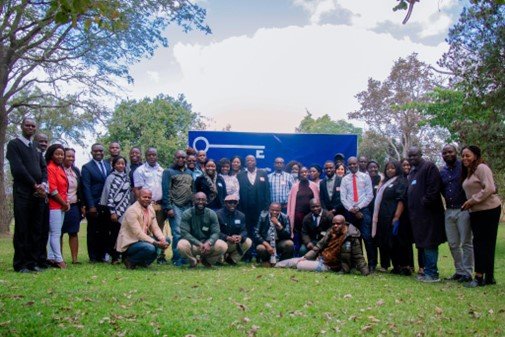
Photo: Participants, trainers and key speakers at a workshop on using beneficial ownership data in Zambia. Source: Zambia EITI
Event partners and trainers
Public officials from the Patents and Companies Registration Agency (PACRA), the Mining Cadastre and Zambia EITI (ZEITI) joined the event. PACRA explained its responsibilities regarding beneficial ownership transparency, the content of Zambian legislation on beneficial ownership and how to access beneficial ownership data. Representatives from the Mining Cadastre department explained how to consult mining licences in the country, while ZEITI representatives showed, via their reports, the contribution of mining to Zambia’s overall economy.
Participants put these insights into practice through varied, hands-on exercises, exploring how they could use this information to interrogate the data in their everyday work. They learnt how to identify and overcome common challenges to accessing data, drew simple and complex ownership chains to practice the concepts they had learnt, and analysed a real beneficial ownership printout to understand who the legal and beneficial owners were and what ownership or interest relationship was underlying it.
Speakers also included John Mukela and Chales Mafa from Makanday, the Centre for Investigative Journalism, and Richard Mulonga from Bloggers of Zambia. They ran sessions on the right to access information in the digital space, and led participants through past investigations which formed part of the Pandora Papers exposé (including the Zambian Co-operative of the Rich and the Atlantic Commodities LTD case).
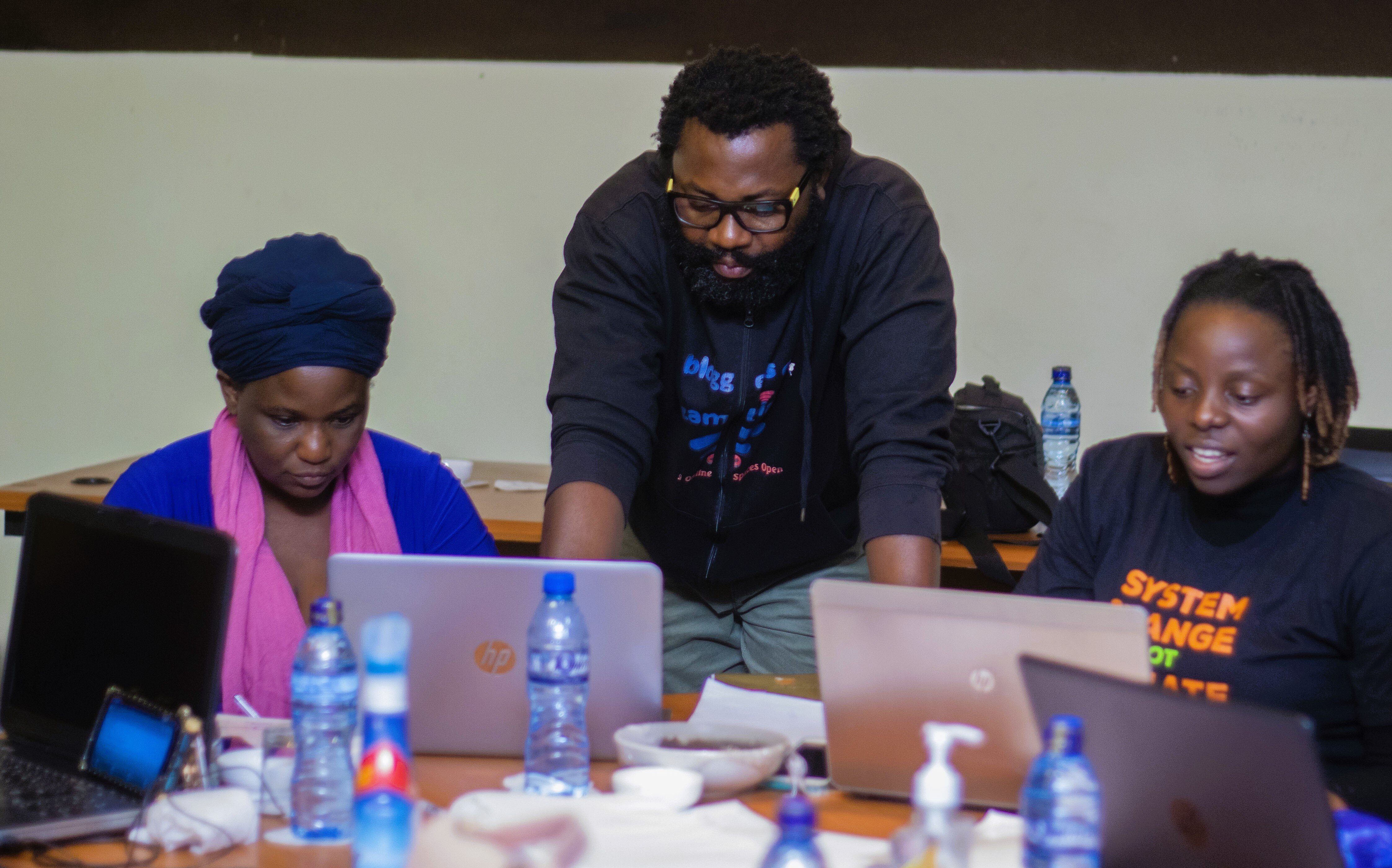
Photo: Participants learning how to access beneficial ownership information in Zambia. Source: Zambia EITI
“My takeaway is that information is readily available, especially on beneficial ownership. Before I thought it needed special abilities but now I understand that it’s just lack of knowledge and am grateful that you brought all these partners together. The information will greatly aid me in my work.” Justina Matandiko, Radio Icengelo
Opening Extractives will continue to engage with beneficial ownership transparency in Zambia
A post-training evaluation demonstrated the timeliness and importance of the workshop. All participants showed an increase in their knowledge on the topic, and requested continued engagement with the OE programme through webinars and online training.
One early outcome is that some participants have already conducted investigations in their region, such as investigating relationships between companies running mining projects and politically exposed persons, and any related connections that may exist to the awarding of public contracts. The OE programme will follow up with these research projects, providing mentorship and guidance to ensure data is used for positive impact.
Further engagement with participants will include training on data cleaning, showcasing useful tools such as Open Ownership’s Beneficial Ownership Data Standard, and delving deeper into ZEITI reports.
Related articles and publications
Publication type
Blog post
Country focus
Zambia
Topics
Opening Extractives
Sections
Impact
Open Ownership Principles
Access
